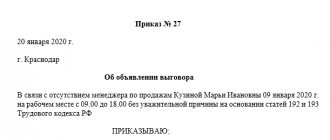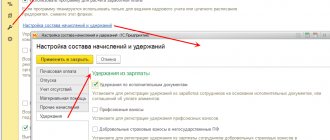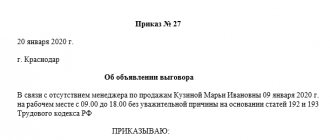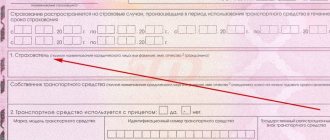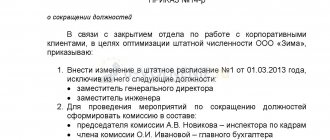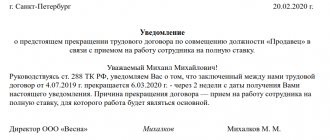Through seeking to prosperity
Labor discipline is the key to a successful business.
This applies not only to achieving personal results, but also affects the prosperity of the company as a whole. Sloppy employees who are late for negotiations, look sloppy, let down counterparties and take it out on clients will not allow the implementation of even the most ideally verified plan by management. And good salaries, comfortable jobs and regular bonuses do not always motivate staff. More precisely, the carrot method is good, but not for the absolute majority.
There are few people who work properly on their own, fulfilling plans and without causing any complaints. They are non-confrontational and neat. At the same time, not because of possible “goodies” from the company, but just the way they are designed. Perfectionists or neat freaks by nature.
Even larger is the group of those who are subject solely to the whip in the form of disciplinary sanctions. Only the threat of punishment motivates them, if not to professional achievements, then at least tolerable compliance with job descriptions and local regulations of the enterprise.
Some do not value their place so much that they violate the “rules of conduct” and fail to fulfill their duties over and over again, accumulating penalties. The bosses of such employees ask themselves: after how many reprimands can an employee be fired?
Legislative regulation according to the Labor Code of the Russian Federation
A citizen who has violated discipline and has previously been subjected to disciplinary action may be dismissed at the initiative of the employer. The legislator does not directly indicate dismissal for a reprimand under the Labor Code of the Russian Federation as a basis for dismissal from office. But based on the legal meaning of Article 81 of the Labor Code, it will become clear that a penalty can serve as a basis for dismissal from office .
Naturally, each case of violation and failure to fulfill official duties is individual. The application of any penalty provided for by law is determined by the employer at his own discretion.
Is it possible to fire someone for one reprimand?
How many reprimands are enough for dismissal? Before answering this question, let's figure out what penalties generally exist and why they are used.
Violations of official duties, requirements of regulations, instructions and orders are disciplinary offenses. An important point is that a person’s actions should not constitute a crime or administrative offense. After all, criminal liability is provided for crimes, and administrative liability is provided for administrative offenses.
Punishments for disciplinary offenses are provided for in the Labor Code of the Russian Federation. Today there are three types:
- comment;
- rebuke;
- dismissal.
A reprimand is an independent punishment and not a reason for dismissal. Of course, if we are not talking about a relapse.
It is strictly forbidden to invent or approve any other options. Labor relations are not a field of fantasy, unfortunately for many managers. We pay special attention to the fact that it is prohibited to develop a system of fines, calling them disciplinary sanctions.
Payments and compensations
Despite the fact that in this case a person is fired for not fulfilling his job duties, he is entitled to both unpaid wages for hours worked and compensation for unused vacation days. If the company owes an employee with accountable funds, then this amount must also be paid. The employee is not entitled to any other compensation.
If on the day of dismissal the employee is not at work, then payments must be made no later than the day following the date of his written request to the administration of the organization with a request to calculate it.
Also, dismissals can be not only for a reprimand, but also in case of staff reduction, liquidation of an enterprise, due to loss of confidence, for absenteeism, for alcohol or drug intoxication.
The employee is fired. What about organizations?
The article is devoted to the responsibility of employees, but it is worth saying a few words about the responsibility of the second party - the employer, who, in his thirst for fair punishment, may demand that a lawyer or personnel officer go beyond the boundaries of labor legislation. This is less common in budgetary institutions, but the management of private companies considers themselves less bound by legal norms. Wrong position.
So, let’s take a situation where the manager does not listen to the lawyer or personnel officer, but demands to apply a penalty not provided for by the Labor Code of the Russian Federation - a severe reprimand for the secretary who violated the deadline for sending the document. The deadline for sending was set in her job description, and the document was important, so the boss considered it possible to choose a more stringent measure of punishment. His position contradicts the Labor Code of the Russian Federation.
If it is not possible to convince of the illegality of such actions, then it should be borne in mind that the consequences will be negative. Firstly, any prohibited actions will be declared illegal and the order will be canceled, and the director or legal entity will be held accountable and pay a fine.
Let's go back to the example. A reprimand or reprimand could be applied to the secretary. We'll talk about how they differ a little later. Now let’s list other options for illegal disciplinary sanctions:
- change of position to a lower one;
- notorious fines;
- vacation cancellation;
- severe reprimand;
- assigning a negative rating;
- working overtime without pay;
- cancellation of earned time off.
Some even insist on making a corresponding entry in the work book. This is also prohibited unless we are talking about dismissal for appropriate reasons. Let us recall that dismissal is the most severe type of punishment in the field of labor relations, but it cannot be applied simply at will. All grounds are enshrined in the Labor Code of the Russian Federation, and the list is exhaustive.
Employers also make another mistake - they incorrectly answer the question of how many reprimands are needed to fire an employee. Mistakenly believing that a reprimand is so serious, then one time is enough to terminate the employment relationship. This is wrong.
Dismissal procedure
The main and most important point of the event is to record the offense properly. If this is not done, then all subsequent actions may be declared illegal by the court.
For our case, the procedure of Art. 193 Labor Code of the Russian Federation. We consider the stages of recording an offense, issuing a reprimand and dismissal in the table:
| Stage | Actions | |
| Rebuke | ||
| Recording a violation | Memo, statements of employees, act with attesting witnesses, witnesses. | |
| Creation of a commission of inquiry | A decree (order) may create an investigation commission (to take inventory and carry out other actions). | |
| Confirmations | Results of medical examination, audit reports, examination. If an employee refuses to participate in these activities, then a report about this is drawn up. | |
| Checking for benefits | Pregnant women cannot be fired even if there are violations. | |
| Proposal for an employee to write an explanatory note | Such a petition is written in free form and submitted through the office against signature. Keep one copy for yourself. The deadline for response is 2 days. It can be larger, but it is desirable that it is no smaller, although its scope is not defined in the law. If no response is received, then a report about this is drawn up and the procedure continues. | |
| Results of the investigation | If a commission was created, it sets out the results of its work in a report or act. | |
| Checking the severity | The circumstances that led to the offense must not be valid (this is a mandatory condition of clause 5, part 1, article 81 of the Labor Code), otherwise the reprimand can be declared illegal through the court. | |
| Order of reprimand | It must be published within 1 month. after discovery of an offense, otherwise it is invalid (Article 193 of the Labor Code of the Russian Federation). No later than 3 days. After publication, this document is given to the employee. This period is mandatory and is provided for in Art. 193 TK. If there is a refusal to sign, then a document is drawn up. | |
| Dismissal | ||
| Repeated violation | The procedure is the same, but instead of a reprimand order, a dismissal order is issued in the T-8 form | |
| Final actions | Calculation, issuance of work and recording in it are carried out as usual, on the last working day. | |
Important
The entire procedure for a reprimand can be shortened and an investigation commission not created. Each action must be recorded in writing and each paper (offers to give an explanation, orders, instructions, etc.) must be handed over to the offender against a receipt through the office of the enterprise.
Fines are prohibited
Fines are not a term from labor law. Although many employers require personnel officers and lawyers to develop a system of fines at the enterprise. Forbidden. Therefore, if appealed, the measure will be canceled.
A fine can be collected from a responsible person who has violated, say, fire safety regulations, only by a representative of the supervisory authority, but not by the company administration.
Or a certain full-time ecologist is obliged to register with the state objects that have a negative impact on the environment, but he did not do this. He was duly brought to administrative responsibility. At the next inspection, it turned out that the ecologist had not done anything - he was fined again. But for the second time, measures were taken against the company itself - a fine was imposed. An environmentalist can be brought to disciplinary liability by the administration of a legal entity, but only a supervisory authority can fine him.
What is the difference between a reprimand and a reprimand
The legislator intended that a reprimand be more severe than a reprimand. But in reality this is a pure formality. After all, criteria for choosing one or another measure are not established anywhere.
Of course, something minor is usually reprimanded. But in one company it is insignificant to violate the dress code, while in another the same thing is classified by management as a serious deviation from the prescribed requirements.
As a rule, the first time is a reprimand, and then a reprimand. But no one obliges you to choose only one option ten or twenty times.
There is also no difference in consequences as such. After a year, both will be “neutralized.” And if you are punished a year after the first sanction was applied, then they will no longer be considered. There is no system in place, that is, dismissal for repeated repetition will not work.
Houston, we have a problem!
Who annoys the employer the most:
- Truants. Constantly “late” and those who disappear for several days/weeks for various reasons (binge, binge, hack work) and come to work with their heads hung proudly.
- Slackers. They come to work, but they don’t bring any benefit.
- Sick people. These are not those who occasionally take sick leave or people with real health problems, but deceivers, malingerers and collectors of sick leave certificates.
- Alcoholics and drug addicts. The first in Russia can be said to be commonplace. In some jobs, such a deficiency may be treated leniently. The latter are not welcome anywhere.
- Unsuitable for professional work. Perhaps the “specialist” has a diploma, but he clearly does not understand the work. Something is constantly being refined, completed, added to. Mentors get tired of wasting energy on endless “tutoring.”
If one party to the employment contract violates the agreement, she is punished. For example, if payments due to an employee are delayed, the organization pays compensation. There are also punishments for personnel, or rather disciplinary sanctions (according to Article 192 of the Labor Code of the Russian Federation). You can leave an employee without a bonus if he has not fulfilled any conditions for receiving it. There is no such punishment in the code, but the provision for bonuses is drawn up by the company itself. The organization does not have the right to impose fines; this is contrary to labor legislation.
Let’s assume that all measures of influence have been tried, but the employee does not respond to attempts to solve the problem peacefully and does not want to quit either. What should an employer do?
What and how to choose
So, by what criteria and who chooses the type of recovery? In practice, everything depends on staffing levels. If there is a personnel officer, then he makes the initial choice, setting out his position in the draft of the relevant order. More often than not, this project is coordinated with a lawyer. But it happens that it is not the personnel officer, but the lawyer who is developing drafts of such orders. If there are none, then the decision is entirely up to the director.
In any case, all circumstances must be taken into account, as well as the explanations of the participants and witnesses of the incident, the characteristics of the person, his attitude to the performance of his duties before this episode, as well as the proportionality of the proposed disciplinary measures.
Exception to the rule
Labor law standards are codified, but are not limited to just one source. Especially when it comes to the legal regulation of the work of individual subjects - police officers, prosecutors or judges. For them the responsibility is different.
For example, for employees of the internal affairs system, Federal Law 342 of November 30, 2011 provides for a wider choice of punishment options, including a severe reprimand.
Let us recall that the previously effective Labor Code contained not three, but four options for disciplinary sanctions (Article 135 of the Labor Code of the Russian Federation) for all categories of workers. The reprimand had two “degrees”: ordinary and strict.
Entry in the work book
If the employer decides to part with the person on this basis, a corresponding entry is made in the work book.
A similar entry is made in the T-2 card, in which the dismissed person signs. Any mistakes made, especially if it concerns the work record book, entail unpleasant consequences for the employer - from the need to make changes or issue a duplicate to fines in favor of the state and the need to pay a former employee according to the rules of Article 394 of the Labor Code of the Russian Federation.
How to correctly formulate the basis
How many reprimands does it take to fire an employee? Two or more times is already a system. Accordingly, the second is, as it were, grounds for dismissal. But the “reprimand” will not appear in the work record book or in the order. In this case, we will be talking about repeated failure by an employee to fulfill work duties without good reason, if he has a disciplinary sanction (clause 5 of Article 81 of the Labor Code of the Russian Federation). And therefore it is important that the first punishment is properly and officially formalized.
It turns out that the situation has formally matured when a second reprimand can be issued. But here you need to decide whether to fire the employee or apply disciplinary action.
Dismissal based on a reprimand, all the nuances, implies that the second offense is quite serious, and the first has already been formalized. In this case, the interval between prosecution is no more than one year.
When issuing a punishment, strictly follow all formalities:
- record the violation;
- request an explanatory note;
- issue a dismissal order;
- introduce the employee to him;
- meet deadlines.
At the same time, comply with the deadlines for bringing disciplinary action. And if the employee refuses to give explanations, then draw up a corresponding report. It is important that duties or rules that are violated are promptly brought to the attention of the offender. That is, there must be a signature in the job description, local act, order.
Removal from office for one-time gross violations
Such violations are considered:
- Absenteeism, absence from work without good reason for more than 4 hours.
- Being intoxicated at work.
- Violation of the confidentiality regime regarding information obtained during work, disclosure of personal information about another employee.
- Theft, embezzlement, intentional damage to property, if the fact is recorded and confirmed by a court decision.
- Failure to comply with labor safety standards, resulting in an accident, accident, catastrophe, etc.
- When performing transactions with the organization's funds, illegal actions were committed and trust was lost.
As we can see, the law allows the application of the most severe penalty - dismissal - for a one-time violation, if it is included in the list established by the legislator.
